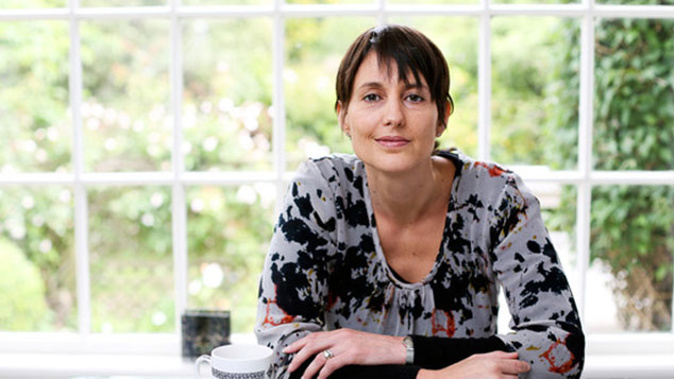
UPDATED 4.34PM: A judge has noted the importance of making a quick decision when he considers granting Lecretia Seales the right to assisted suicide.
Justice David Collins has reserved his decision on if the terminally ill woman will have access to lethal drugs. Seales was diagnosed with brain cancer in 2011 and is paralysed down the left-hand side of her body.
He'll work through Queen's Birthday weekend, mindful that Seales is only expected to live for another few months.
"I obviously wish to get my decision out as soon as I possibly can. I cannot tell you when that will be, what I can do is promise you that I will get on with it and try and get it done as quickly as I possibly can," he said.
The High Court heard today that that for every person that benefits from assisted suicide, another will be harmed.
Lawyer Professor John Rishworth QC, arguing against Seales' challenge, says vulnerable people will die prematurely if assisted suicide is allowed.
"There will be people who surrender their lives even if they go through processes that are designed to establish that they are not coerced because that option is there and becomes part of the landscape," he said.
Rishworth further argued against Seales' claim that she should have access to lethal drugs when her brain cancer becomes intolerable, saying the law is in place to protect more than just dignity.
"The purpose is to ensure that people are treated with dignity but the actual right is pitched at this high level. It is not the case that one can say 'Well that is because of dignity' and then bring dignity down from the high level."
Rishworth also read a British Supreme Court judgement from Lord Neuburger to the court.
"If the act which immediately causes the death is that of a third party that may be the wrong side of the line, whereas if the final act is that of the person themself, that is the permissible side of the line."
The Voluntary Euthanasia Society submitted that Seales should have access to lethal drugs because it could be considered part of her treatment.
Kate Davenport QC submitted that if the intention is right, injecting deadly drugs couldn't be classed as a homicide.
"If what miss Seales' general practioner is seeking to do can properly be defined as treatment, then it doesn't fall within the definition of the Crimes Act," she said.
The Care Alliance, an anti-euthanasia group, described the attempt to legalise assisted suicide as "chilling". Lawyer Victoria Casey said the disabled would be particularly vulnerable, because of their legal standing.
"This casual and perhaps unthinking equating of disability with a lack of fundamental human dignity is perhaps the best demonstration of the dangers that the disabled community face," she told the court.
Earlier, the practicalities of assisted suicide came under the spotlight. The High Court heard how her GP was willing to help her to die if she could no longer bear the suffering.
However, Attorney General lawyer Mike Heron QC says there's no guarantee drugs would give her a peaceful, easy death.
"It might be, but we have no knowledge of that. And what if the medication chosen produces a terrible death, as some have done," stated Heron.
The lawyer also told the High Court in Wellington the secretive nature of having a GP administer lethal drugs shouldn't be legal.
He claimed it would be a major departure from professional standards for a doctor to do what she's asking.
"It's what the application seeks, is for leave to come back without notice to anyone. It would be done in secret."
Heron also said there was little provision for someone to be granted aid in dying under the current laws, and emphasised the move would have to be done through "the parliamentary process" if euthanasia and assisted suicide was to become lawful.
Euthanasia has previously been rejected in New Zealand twice. In 1995, Michael Laws' 'Death With Dignity Bill' failed to gain enough votes (29 for, 61 against), as did New Zealand First MP Peter Brown's 'Death With Dignity Bill' in 2003 (58-59).
However, despite a lack of political support, physician-assisted dying (PAD) has had a better response from the New Zealand public. A December 2014 study published in the Journal of Palliative Medicine by Nicola Rae, Malcolm Johnson and Phillipa Malpas found 82 percent of survey participants felt the practice should be legalised.
Of that percentage, nearly 65 percent wanted it to be solely available to "those suffering unbearably with little hope of recovery".
"The results have highlighted the high value respondents place on patient autonomy with regards to end-of-life choices; however the choice to hasten death is not a 'right' that should be available to all."
Voluntary Euthanasia Society (VES), Care Alliance and the Human Rights Commission were awarded the right to give submissions as part of Seales' case, which is expected to finish this afternoon.
According to Section 179(b) of The Crimes Act 1961, a prison term of up to 14 years is possible for anyone who "aids or abets any person in the commission of suicide", while Section 164 states anyone who causes someone's death "by any act or omission" is causing a crime by way of acceleration of death.
There's further legislation in the New Zealand Bill of Rights Act 1990 against euthanasia.
Section 8 states: "No one shall be deprived of life except on such grounds as are established by law and are consistent with the principles of fundamental justice." However, a medical patient may refuse treatment under Section 11, clearing the medical practitioner of assisted suicide.
Euthanasia laws internationally
Assisted suicide and euthanasia has caused controversy in a number of countries.
In Dublin, a case involving the assisted suicide of multiple sclerosis sufferer Bernadette Forde wrapped up after a four-year battle in April.
O'Rorke was on trial for assisted suicide after Forde was found dead in 2011.
According to a recording from Forde, the 51-year-old had decided to commit suicide on her own through fear her friend would face prosecution. O'Rorke was later acquitted.
In Switzerland, a clinic was established in 1998 to help those with terminal physical and mental illnesses die, while they also offer assisted suicide for those with serious conditions. The service is available for anyone.
A referendum in Zurich rejected calls to ban assisted suicide in 2011 by 85 percent of voters, while 78 percent of voters rejected a notion to ban assisted suicide for foreigners.
Take your Radio, Podcasts and Music with you









